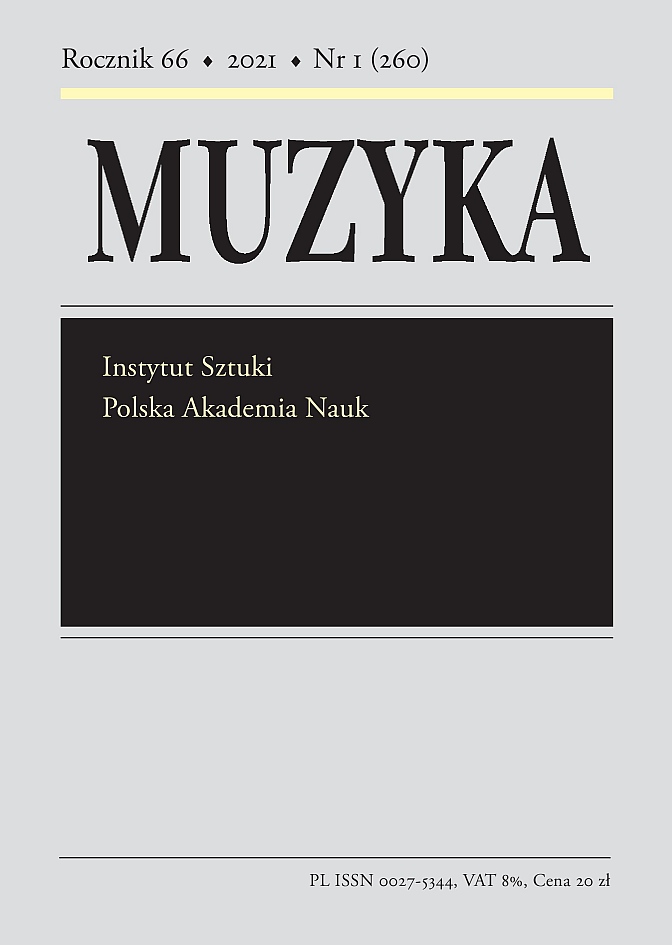O antyfonie "Iesus Nazarenus Rex Iudaeorum" bł. Władysława z Gielniowa
On the Antiphon 'Iesus Nazarenus Rex Iudaeorum' by Blessed Ladislas of Gielniów
Author(s): Jakub KubieniecSubject(s): Music
Published by: Instytut Sztuki Polskiej Akademii Nauk
Keywords: Ladislas of Gielniów; antiphon Iesus Nazarenus Rex Iudaeorum; medieval music; Gregorian chant; litanies
Summary/Abstract: According to reliable early sixteenth-century testimony, the antiphon 'Iesus Nazarenus Rex Iudeorum' was written by one of the most eminent late medieval Polish poets, Blessed Ladislas of Gielniów. It is one of just three works by this Observant friar that have been preserved with melody, and the only one that is not a contrafactum. Despite this, the composition has received no music-textual critical edition thus far, nor has it been submitted to detailed liturgical or musicological analysis. Some scholars even question whether Ladislas actually wrote the antiphon’s musical setting. This article defines the liturgical function of the antiphon, found in sources among the ‘suffrages’, and probably also performed during penitential processions (Litania Maior, Litania Minor). Nine newly described sources for this composition prove that it was also sung outside Poland, for instance at the Abbey of SS Ulrich and Afra in Augsburg, at Havelberg Cathedral, in Zagreb, and at Pauline monasteries in Hungary. The rather surprising international popularity of this antiphon was probably related to the growing threat from the Ottoman Empire. The foreign sources, the oldest of which date from the mid-sixteenth century, contain the same melody as the Polish sources, which might suggest that it is the original melody from the times of Ladislas of Gielniów. Its composer demonstrated a knowledge of musical rhetoric and plainchant style. He was probably a pious monk who treated song composition as a key element in the mission of the Observant friars.
Journal: Muzyka
- Issue Year: 66/2021
- Issue No: 1
- Page Range: 3-25
- Page Count: 23
- Language: Polish

